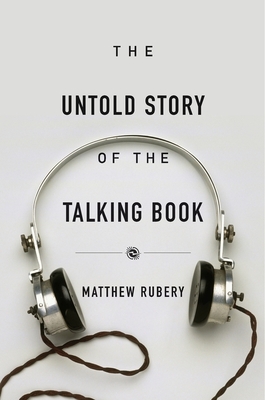Expedite your nonfiction book discovery process with Readara interviews, summaries and recommendations, Broaden your knowledge and gain insights from leading experts and scholars
In-depth, hour-long interviews with notable nonfiction authors, Gain new perspectives and ideas from the writer’s expertise and research, Valuable resource for readers and researchers
Optimize your book discovery process, Four-to eight-page summaries prepared by subject matter experts, Quickly review the book’s central messages and range of content
Books are handpicked covering a wide range of important categories and topics, Selected authors are subject experts, field professionals, or distinguished academics
Our editorial team includes books offering insights, unique views and researched-narratives in categories, Trade shows and book fairs, Book signings and in person author talks,Webinars and online events
Connect with editors and designers,Discover PR & marketing services providers, Source printers and related service providers

The Untold Story of the Talking Book
Literary Criticism > Books & Reading
- Harvard University Press
- Hardcover
- 9780674545441
- 9.3 X 6.1 X 1.3 inches
- 1.65 pounds
- Literary Criticism > Books & Reading
- (Single Author) Asian American
- English
Readara.com
Book Description
Histories of the book often move straight from the codex to the digital screen. Left out of that familiar account are nearly 150 years of audio recordings. Recounting the fascinating history of audio-recorded literature, Matthew Rubery traces the path of innovation from Edison's recitation of Mary Had a Little Lamb for his tinfoil phonograph in 1877, to the first novel-length talking books made for blinded World War I veterans, to today's billion-dollar audiobook industry.
The Untold Story of the Talking Book focuses on the social impact of audiobooks, not just the technological history, in telling a story of surprising and impassioned conflicts: from controversies over which books the Library of Congress selected to become talking books--yes to Kipling, no to Flaubert--to debates about what defines a reader. Delving into the vexed relationship between spoken and printed texts, Rubery argues that storytelling can be just as engaging with the ears as with the eyes, and that audiobooks deserve to be taken seriously. They are not mere derivatives of printed books but their own form of entertainment.
We have come a long way from the era of sound recorded on wax cylinders, when people imagined one day hearing entire novels on mini-phonographs tucked inside their hats. Rubery tells the untold story of this incredible evolution and, in doing so, breaks from convention by treating audiobooks as a distinctively modern art form that has profoundly influenced the way we read.
Author Bio
My work focuses on modern literature, media, and reading practices. Originally from Texas, I joined Queen Mary in 2010 after teaching in Leeds and Philadelphia for a number of years and completing my doctorate at Harvard. My books include The Novelty of Newspapers: Victorian Fiction after the Invention of the News (Oxford, 2009) and The Untold Story of the Talking Book (Harvard University Press, 2016).
Other books that I have edited or co-edited include Audiobooks, Literature, and Sound Studies (Routledge, 2011), Secret Commissions: An Anthology of Victorian Investigative Journalism (Broadview, 2012), and Further Reading (Oxford, 2020). ‘My latest book is titled Reader’s Block: A History of Reading Differences (Stanford, 2022).’
Research Interests
Victorian Fiction
Media History and History of the Book
Audiobooks and Sound Studies
Disability Studies
Reading
Recent and On-Going Research
My research interests include modern literature, media, and reading practices. My first book, The Novelty of Newspapers: Victorian Fiction after the Invention of the News (Oxford, 2009), was awarded the European Society for the Study of English Book Award for Junior Scholars. This was followed by Secret Commissions: An Anthology of Victorian Investigative Journalism (Broadview, 2012), which documents how unsparing descriptions of poverty and social injustice became a regular feature of English journalism. Guardian journalist Nick Davies described it as ‘a book full of amazing stuff—Victorian in its facts, but contemporary in its themes’.
My subsequent work continues to explore the relationship between literature and new media. Audiobooks, Literature, and Sound Studies (Routledge, 2011) was the first essay collection to address the significance of recorded literature by authors ranging from Charles Dickens to Toni Morrison and Barack Obama. The Untold Story of the Talking Book (Harvard University Press, 2016) received a Certificate of Merit in the 2017 Association for Recorded Sound Collections Award for Excellence.
My latest books include Further Reading (Oxford, 2020), a collection of more than thirty essays on the status of reading in the twenty-first century, and Reader’s Block: A History of Reading Differences (Stanford, 2022).
My research has been generously supported by the American Academy of Arts and Sciences, Arts & Humanities Research Council, British Academy, British Library, Leverhulme Trust, National Endowment for the Humanities, National Humanities Center, Swedish Research Council, and Wellcome Trust.
Source: Queen Mary University of London
Videos


Community reviews
No Community reviews

